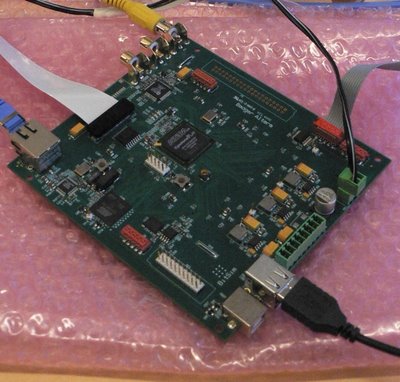>Recently I’ve been working with Qtopia for Bitsim. The plan is to support acceleration through Qtopia on Linux when using their graphics controller BADGE. For those of you interested in hardware, BADGE is an IP-block that can be implemented in both FPGAs and ASICs. It offers a basic framebuffer as well as acceleration of basic shapes such as lines, rectangles and text (!). It can also be used for blitting and such. You might know it from an apperance at LinuxDevices.
Anyway, the correct work is being made using the BADGER reference board. It offers a 180 MHz ARM9 CPU and an FPGA holding BADGE operating at 100 MHz. These are interconnected using a 60MHz data bus. Not too much power or bandwidth, so it will be interesting to see what kind of performance we can get from it. The screen used is an 800×600 pixels TFT – quite a few pixels per megahertz compared to other reference boards I’ve seen. The BADGE hardware can be tuned to support different bit-depths, but right now I’m working with a 4/4/4/4 configuration (four bits per color and four alpha bits).

The BADGE GPU can be reached through a library and a custom Linux framebuffer driver. The idea is to have Qtopia use this library through a custom QScreen class. I’ll also have to come up with a custom QWSWindowSurface, a QPaintDevice and a QPaintEngine.